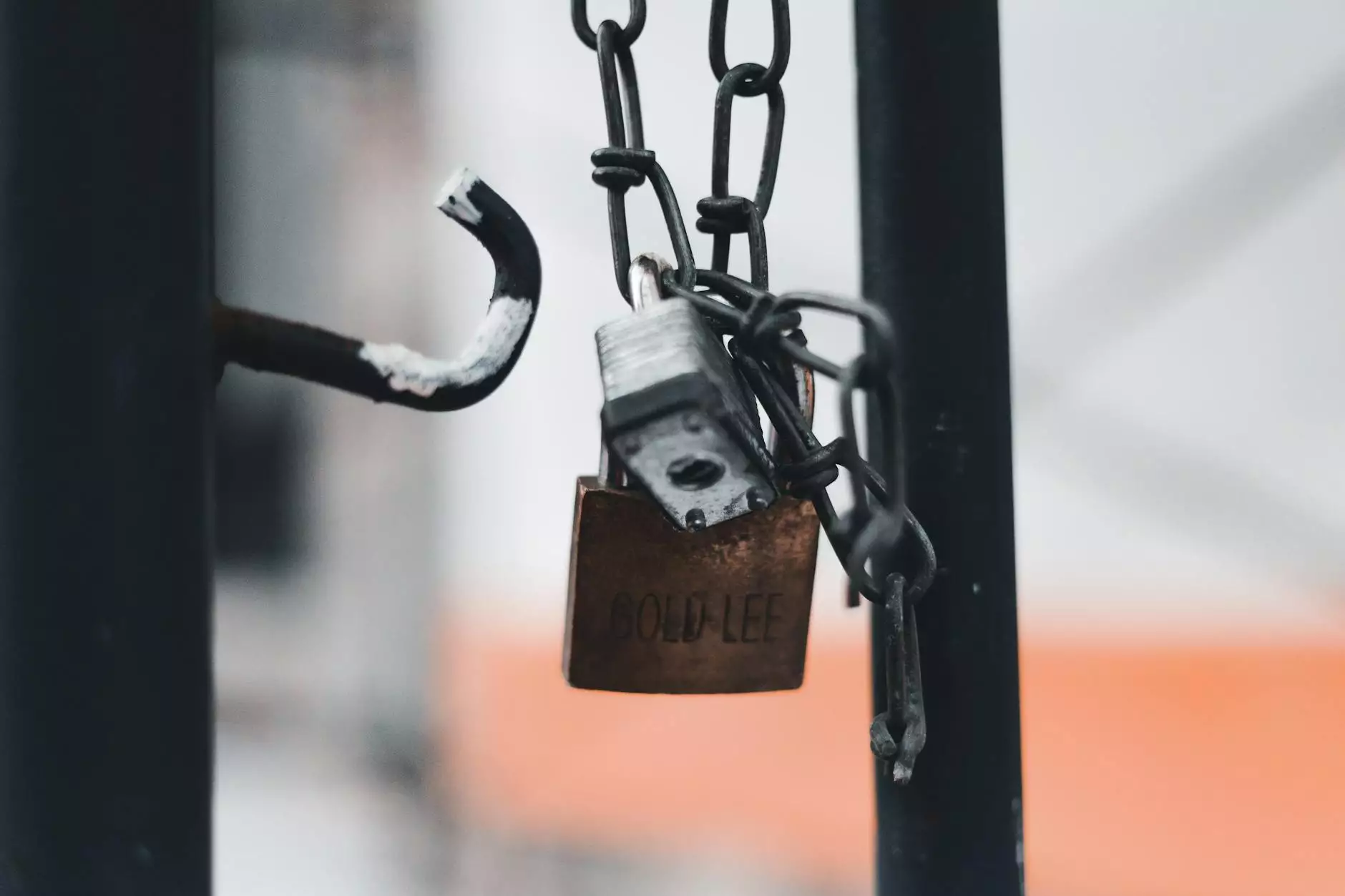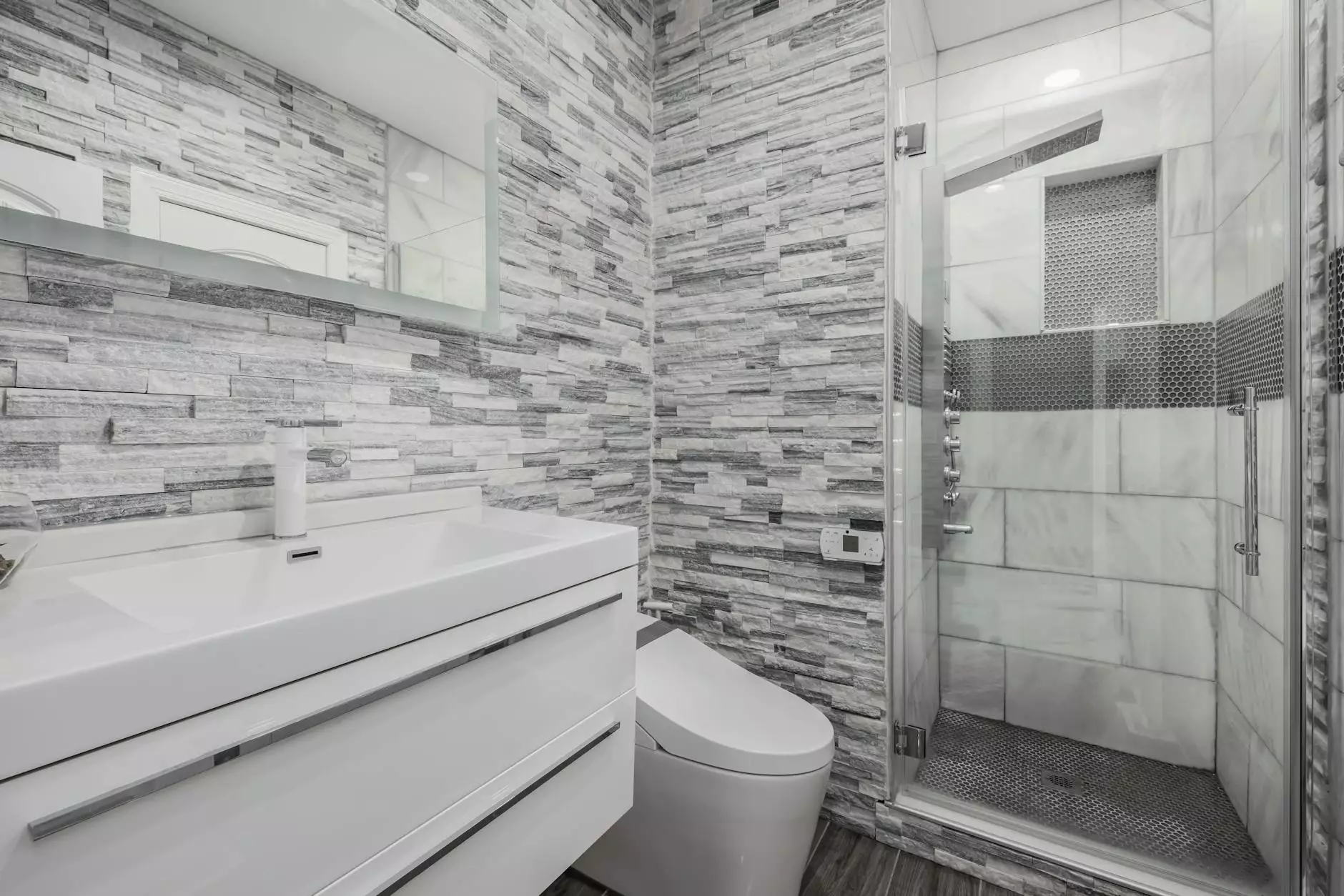The Ultimate Guide to Door Lock Hardware for Enhanced Security

Introduction to Door Lock Hardware
In an age where security is paramount, understanding door lock hardware is essential for homeowners and business owners alike. This guide will delve into the types, benefits, and proper maintenance of different door lock systems, ensuring you can make informed decisions about the security of your property.
Understanding the Importance of Door Lock Hardware
Door lock hardware serves as your first line of defense against unauthorized access to your home or business. With increasing crime rates and security breaches, investing in high-quality locking systems is vital. The right lock not only provides security but also deters potential thieves, making them think twice before attempting to break in.
Types of Door Lock Hardware
There are several categories of door lock hardware, each with unique features and security levels. Here’s a breakdown of the most common types:
1. Deadbolt Locks
Deadbolts are one of the most secure types of door locks and are recommended for external doors. They operate with a key or a thumb turn on the inside and provide robust protection due to their design, which prevents the lock bolt from being easily manipulated.
2. Knob Locks
Knob locks are common in residential homes. They consist of a lock mechanism that is integrated into the door knob itself. While they provide a level of security, knob locks are often considered less secure than deadbolts and should generally be used in conjunction with a deadbolt for optimal security.
3. Lever Handle Locks
Lever handle locks are similar to knob locks but are typically easier to operate, making them popular in commercial settings. They are often paired with deadbolts to enhance security.
4. Smart Locks
In today’s digital age, smart locks are gaining popularity. These locks can be controlled via a smartphone app and often include features like remote locking and unlocking, access logs, and temporary codes for guests. They provide both convenience and security.
Choosing the Right Door Lock Hardware
When selecting door lock hardware, consider the following factors:
1. Security Rating
Look for locks that meet certain security standards and ratings. In the U.S., the American National Standards Institute (ANSI) provides security ratings for locks, with Grade 1 being the highest.
2. Material
High-quality locks are typically made of durable materials such as hardened steel, brass, or zinc alloy. Ensure that the hardware you choose can withstand physical attacks.
3. Compatibility
Ensure that the door lock hardware is compatible with your door type and thickness. A professional locksmith can assist you in making the right choice.
Installation of Door Lock Hardware
Proper installation of your door lock hardware is crucial for optimal security. Here are some tips for effective installation:
1. Follow Manufacturer Instructions
Always read the installation instructions provided by the manufacturer. This ensures you properly install the hardware for maximum security and functionality.
2. Hire a Professional
If you're not confident in your DIY skills, consider hiring a professional locksmith. They have the expertise to install your locks securely and can offer additional recommendations based on your specific needs.
3. Check Alignment
After installation, check to make sure that the lock components align properly. Misalignment can compromise security and lead to lock failure.
Maintenance of Door Lock Hardware
Regular maintenance is key to ensuring the longevity and effectiveness of your door lock hardware. Here are some maintenance tips:
1. Lubrication
Periodically apply a silicone-based lubricant to the keyhole and moving parts of the lock. Avoid using oil-based lubricants, as they attract dust and grime, which can impede functionality.
2. Regular Inspections
Inspect your locks regularly for signs of wear and tear. Look for rust, loose screws, or components that don’t operate smoothly. Early detection of issues can prevent costly repairs.
3. Keep the Area Clean
Ensure that the area around your locks is clean and free from debris. This prevents dirt from entering the lock mechanism and keeps it functioning smoothly.
Common Issues with Door Lock Hardware
Even the best door lock hardware can face issues over time. Here are some common problems and their solutions:
1. Key Won't Turn
If your key won’t turn, it could be due to dirt buildup or a misaligned lock. Try lubricating the lock, but if the problem persists, consider calling a locksmith.
2. Lock Sticks or Is Jammed
Locks may stick due to lack of lubrication or debris. Ensure you keep the area clean and lubricated. If the issue continues, inspection by a professional may be necessary.
3. Broken Key
If your key breaks off in the lock, don't panic. Use a pair of needle-nose pliers to extract it if part of the key is visible. If not, you may need a locksmith to remove it properly.
Enhancing Security Beyond Door Lock Hardware
While having robust door lock hardware is vital, it’s also important to consider other security measures:
1. Security Cameras
Installing security cameras around your property can deter potential intruders and provide valuable evidence if a break-in occurs.
2. Alarm Systems
Consider investing in a monitored alarm system. These systems can alert you and law enforcement in case of unauthorized access.
3. Outdoor Lighting
Proper outdoor lighting not only enhances visibility but also deters criminals. Well-lit entrances and pathways can make a significant difference in security.
The Future of Door Lock Hardware
The realm of door lock hardware is continually evolving, with advancements in technology paving the way for more secure and user-friendly systems. Smart locks are at the forefront of this evolution, integrating with home automation systems and providing unparalleled convenience.
1. Biometric Locks
These locks utilize fingerprint recognition technology for maximum security. This eliminates the need for traditional keys, providing a unique and secure access point for authorized users.
2. Keyless Entry Systems
Keyless entry systems offer enhanced flexibility and convenience, allowing users to enter their homes without a physical key. These systems can be operated via keypads, smartphones, or remote controls.
Conclusion
In summary, investing in high-quality door lock hardware is crucial for protecting your home or business. By understanding the various types, installation processes, and maintenance tips outlined in this guide, you can secure your property effectively. Remember, the best security solution combines robust hardware with additional measures such as surveillance, alarms, and lighting. For all your security needs, consider exploring the offerings at Kaukaban.com, your trusted source for keys, locksmith services, and hardware stores.









